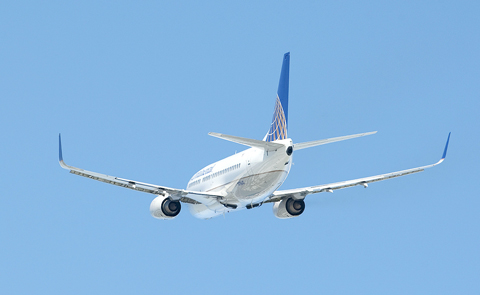Boeing Co chief executive officer Jim McNerney said the US government should work on breaking down global trade barriers to help US businesses compete and hire more workers.
“We all benefit from more trade,” McNerney said during a forum at the Hilton Chicago sponsored by Northwestern University’s Kellogg School of Management.
Boeing cut 9,300 jobs last year and the company yesterday told more than 1,000 employees that their positions would be terminated as of April 23. The number of Americans filing first-time claims for unemployment insurance unexpectedly increased last week, pointing to an uneven recovery in the labor market.

PHOTO: BLOOMBERG
McNerney, who attended a jobs summit at the White House in December, said any jobs plan should focus on education, taxes and trade policy. He urged US President Barack Obama to lock down trade agreements with South Korea, Panama and Colombia as US competitors move forward with their own pacts.
“We need the government’s help to both break down trade barriers and enforce international agreements,” he said.
McNerney also emphasized the importance of innovation and education to US companies operating in the global marketplace. Chicago-based Boeing employs almost 160,000 people and some of the jobs wouldn’t exist if the company wasn’t internationally competitive, he said.
“We are a high-tech exporter,” he said.
McNerney said Boeing must continue to focus on innovation and productivity to stay ahead of Chinese competition. China is the world’s fastest-growing air-travel market and the 168-seat C919, built by a state-controlled company, is expected to make its maiden flight in 2012.
“We now can make airplanes in a way that no one else can make them,” he said. “That will be relevant for the next 50 or 60 years.”
He said Boeing “stumbled some” on the development of the 787 and the 747-8 and said other new programs, such as a version of the F/A-18 that allows for electronic jamming, have been successes. The company also has reached targets on its P-8 program, a customized 737 to be used by the US Navy for maritime patrol, he said.
“We hit more new product milestones last year than any time in our history,” McNerney said.
About half of the 1,000 layoffs announced today are for workers based in the company’s Seattle-area manufacturing hub, and most of the notices went to engineers and information- technology employees, spokesman Tim Healy said.
McNerney has said the company would exceed the target of 10,000 job cuts that wasn’t quite reached last year. Healy said there’s no specific goal for 2010 employment and that it could increase in the first half and then decline later this year as development programs — the 787 Dreamliner and the 747-8 jumbo jet — enter production.
“This year it’s much more of a return to making sure our staffing meets our needs, whereas last year the reductions were closely linked to what was going on with the economy,” Healy said yesterday.

Intel Corp chief executive officer Lip-Bu Tan (陳立武) is expected to meet with Taiwanese suppliers next month in conjunction with the opening of the Computex Taipei trade show, supply chain sources said on Monday. The visit, the first for Tan to Taiwan since assuming his new post last month, would be aimed at enhancing Intel’s ties with suppliers in Taiwan as he attempts to help turn around the struggling US chipmaker, the sources said. Tan is to hold a banquet to celebrate Intel’s 40-year presence in Taiwan before Computex opens on May 20 and invite dozens of Taiwanese suppliers to exchange views

Application-specific integrated circuit designer Faraday Technology Corp (智原) yesterday said that although revenue this quarter would decline 30 percent from last quarter, it retained its full-year forecast of revenue growth of 100 percent. The company attributed the quarterly drop to a slowdown in customers’ production of chips using Faraday’s advanced packaging technology. The company is still confident about its revenue growth this year, given its strong “design-win” — or the projects it won to help customers design their chips, Faraday president Steve Wang (王國雍) told an online earnings conference. “The design-win this year is better than we expected. We believe we will win

Chizuko Kimura has become the first female sushi chef in the world to win a Michelin star, fulfilling a promise she made to her dying husband to continue his legacy. The 54-year-old Japanese chef regained the Michelin star her late husband, Shunei Kimura, won three years ago for their Sushi Shunei restaurant in Paris. For Shunei Kimura, the star was a dream come true. However, the joy was short-lived. He died from cancer just three months later in June 2022. He was 65. The following year, the restaurant in the heart of Montmartre lost its star rating. Chizuko Kimura insisted that the new star is still down

While China’s leaders use their economic and political might to fight US President Donald Trump’s trade war “to the end,” its army of social media soldiers are embarking on a more humorous campaign online. Trump’s tariff blitz has seen Washington and Beijing impose eye-watering duties on imports from the other, fanning a standoff between the economic superpowers that has sparked global recession fears and sent markets into a tailspin. Trump says his policy is a response to years of being “ripped off” by other countries and aims to bring manufacturing to the US, forcing companies to employ US workers. However, China’s online warriors